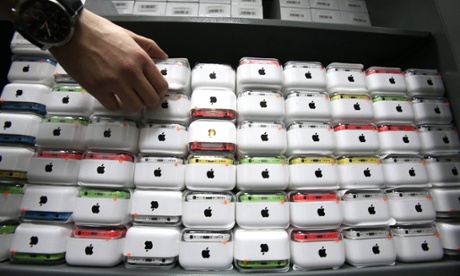http://www.cjr.org/feature/build_the_wall_1.php?page=all
This link is an article by David Simon,
Creator of the TV hit 'The Wire' and a former journalist, he has written this
article to defense the newspaper industry against new and digital media.
Section One:
David Simon compares the internet and
newspaper, he explains that the content on the internet wants to be free but newspapers need to find a way to make people pay. He strongly believes that people will pay for news and that there are many people who agree with his opinion/point of view and are willing to keep newspapers alive as newspaper journalism is far better in terms of for news to them. He aims his article at high end journalists and not the average everyday reader. content matters the most, is his point, he explains how most newspapers are ruining their business and their revenue by going online and making it free for people. He tells the larger newspaper executives that their newspapers can be saved, introducing paywalls online and doing so together will make a change and a change for a more positive outcome for newspapers as they will get income from subscribers.
Section Two:
This net section focuses on newspaper revenue and how paywall can help create a new way to earn money but clarifies that the two main newspaper companies using this method are The Times and The Post, he identifies the strength they could win with would be to act together and implement the paywall at the same time or else it won't pan out the ideal way and will end up in failure. He emphasizes the power, content, quality and range with reader that The Times has, industry leaders have reacted to this problem very slowly, that they are vulnerable. Furthermore in order to protect and keep The Times content that is of high quality from experience journalists would be through a paywall and that most people will pay for the newspaper on or offline going against how online information is seen as superior.
Section Three:
Section three is about how newspapers have potential to make readers accept paywalls and it won't seem as bizzare as we assume they would feel about them. The example was like that 10% of 210.000 sun readers who pay a subscription rate less than half the price of home delivery, would represent about $2.5 million. Even though 10% of the many thousands pay for it, this amounts to a high revenue for the newspapers.
Section Four:
Section 4 talks about the outcomes of The Times and The Post implementing a paywall to create revenue for newspaper, how it will help these newspapers survive through this issue with new and digital media and online journalism. Furthermore he says the paywall is a cheap but short term and long term very profitable. He touches on the assumption that the would be a potential collapse of regional papers, providing oppertunities for subscriptions online to overtake.
In conclusion, i think that David Simon's point is realistic and can work out for the newspaper industry. Through his in depth understanding of the two; internet and newspaper, he explains how people will be willing to pay for their news with a subscription. He favors newspapers and believes there is still worth, potential and life still out there for them and that they shouldn't give up or watch their number of readers count go down. The younger audience being so influence by technology as they grow up would be a harder target and therefore David encourages newspaper to pay attention to this target group and alter or improve newspaper slightly o cater for that group.
Comments:
1st Comment:
I fully agree with David Simon.
The big dogs of journalism must act soon and decisively if they want to save the virtues and quality that define the very notion of their profession.
I'd really rather pay for a good, interesting, unbiased, informative, product of journalism than read amateur bloggers who jot down a few sentences and then cover half of the screen with screaming advertisements.
#42 Posted by Nerijus on Thu 23 Jul 2009 at 08:10 AM
This post is from a person who strongly agrees with he
article, he sees news as a way to see the world, if it was written by
inexperienced people that put their own opinion before telling the plain truth
then news will be something no one will trust at all. He faintly touches on the
fact that quality of professionals is better than getting news from amateur
bloggers. Furthermore these blogger may take up most of their blog with adverts
showing they care more about money from adverts than quality to reporting news
with their view count. although blogging would get more views and opinions
getting news from professional institutes make readers feel more trustworthy
and believable as well as well informed.
2nd Comment:
Fabulous analysis. Have one suggestion.
The analysis is fabulous because David Simon reports on the behind the scenes transformation in business management drivers in media and other markets (e.g. detroit). Like the writer, I've experienced the days when product development and sales were the drivers for managing business. Today financial performance is the driver. When the latter dominates the former, the result is mediocrity and tricky business models to derive revenues. It is time to invest in producing a product everyone is proud to make, sell, and buy.
Also, Simon's credibility is high due to his participation in the premium cable market. Subscription levels and profits are at all time highs in 4th qtr 2008, even during the peak of an economic crisis. This is a clear message from consumers which all media should listen carefully to. Do not underestimate what consumers will pay for quality.
My suggestion. A 5 page article allows the author to truly analyze the problem, doesn't it? This is a competitive advantage. Free news TV and talk radio don't have the time to cover news so comprehensively. Bloggers don't have the resources for comprehensive research and analysis. Consider how comprehensive coverage - among other features enabling real time interactivity from anywhere and quality control - would transform audience interactivity from chaotic to rewarding conversations. Such satisfying conversations and the potential collateral benefits (chance to connect with like-minded people) would sustain a premium subscription base.
Katherine (at) comradity.com
#29 Posted by Katherine Warman Kern on Tue 21 Jul 2009 at 08:30 AM
This post by another person also agrees with the article
highlighting the comprehensive and details coverage the news include in their
articles. She knows the writters background and also comments a lengthy post
which slightly encourages people to agree with her. Her opinion is clear and
detailed in order to make readers see her reaction. She identifies how free
news tv and radio don't have the time to cover news in such detail and bloggers
don't have the resources to do what the current news journalists can do.
subscription for good quality and comprehensive news is something people would
subscribe to and be willing to pay because it would be a better source than to
follow amateur bloggers, listen to a 30 second update on the radio or watch a
brief 1 minute news on BBC.
3rd Comment:
It's funny watching the comments become more hostile as I read down the page, as non-regular CJR readers dive in from around the internet. One of the downsides of twitter etc. is that any conversation can be quickly hijacked by a stream of people saying "I won't pay for anything," "information wants to be free" and the like. (And then the inevitable fightback with cries of "The Internet Sucks".) The comment system encourages this kind of argument, but more nuance is needed, of course.
Simon senses something which I think many newspaper people do, and evangelists for Free often don't: a free web-based newspaper is, by definition, a different beast to a print-based newspaper in terms of content. The web is ill-suited to 10,000 word articles, and its instant-sharing nature - which seems to get ever more accelerated - is ill-suited to that sort of conversation. That doesn't mean that good, interesting stuff doesn't happen in free-world, and maybe Simon doesn't give enough credit there. But the advocates of free - and I mean those who argue it *should* be the model, not those who merely argue it *will* be the model - don't seem to acknowledge the sheer investment in time and personnel this kind of in-depth journalism takes. Even if you're a huge believer in crowdsourcing you have to accept there are some things that need the professional touch. Even in the time of fast food we still cook sometimes, and people realise how satisfying it is. Similarly, even in a time of free quick-share information, some people, some of the time - probably better-off people - will always want to sit and read the paper, and will pay for the highest quality stuff. Saying "information wants to be free" ignores the fact that the best journalism offers more than information, but an experience - a story well told, etc - and that stuff can, I'm 100% certain, be charged for.
Where I'm sceptical is in regional. I've no doubt the NYT and WaPo must go this route, and I've no doubt they will. I suspect sooner or later one non-profit website will emerge in the US offering free view-from-nowhere newsto those who want to avoid the more partisan HuffPo media. But my gut tells me people won't pay for a local newspaper in addition to a national - and make no mistake, if the NYT and WaPo go this route, they will need to nationalise and internationalise themselves fast. If your growing revenue stream is from paying subscribers, you need, at minimum, a version of your site which sidelines the local content for them to use. If you're subscribing to (say) the Economist and NYT online for $20 a month, are you going to pay another $10 for local news?
#28 Posted by Rav Casley Gera on Tue 21 Jul 2009 at 08:28 AM
This post also agrees
with the article using the example of fast food. People buy fast food and when
they make something for dinner at home, they may be surprised at how nice it
is. This example is used with news, reading quick small articles using apps,
sites and blogs then reading a newspaper and seeing how different the
information being provided is communicated to the reader. reading news from
apps, sites and blogs opposed to the newspaper, the readers will be able to see
the difference and therefore understand the difference in quality and
comprehensive detailed news. This post
also includes that some people pay for 'The Economist' each month a certain
amount, its unlikely that they will pay more for a local or international
newspaper.
The mentality of people today is that the
internet is free and there would react to paying for good quality and professionally
written news bizarre however both the image of reading a newspaper
with a coffee in the morning as well as the respect and the
understanding of the quality of news in the newspaper would get people
to subscribe and through the encouraging comments making their
opinion very clear.












